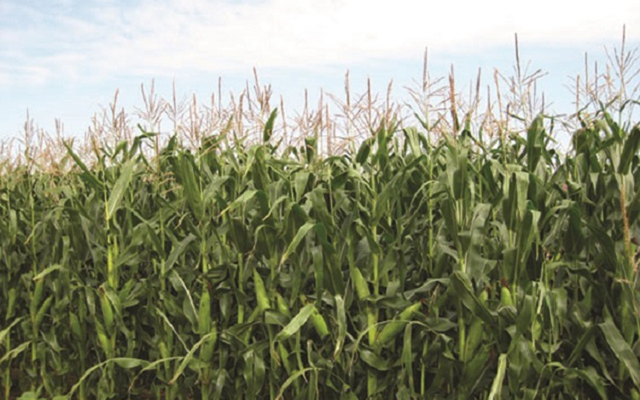Sakunda targets one million hectares

Elita Chikwati Senior Reporter
Sakunda Holdings has pledged to partner Government in sponsoring maize production to reach a target of one million hectares in the next five years.
Sakunda is among private companies that played a crucial role in funding Command Agriculture in the 2016-17 season.
Zimbabwe expects to harvest close to three million tonnes of cereals this year.
Making a presentation at a workshop to review Command Agriculture recently, Sakunda Holdings chief executive Mr Kuda Tagwireyi told stakeholders that investing in agriculture was one of the major ways to boost the economy.
Also read:
- Command Agric locally funded — Mnangagwa
- Winter wheat to top 280 000t
- GMB gets $200m for grain purchase
- Command cropping calendar on cards
- Zimbabwe expects 2,7m tonnes of maize
- Zim set to achieve food self-sufficiency
- 2016-17 season exceeds target
“We are prepared to extend agricultural support to five years. Sakunda aims to do one million hectares in five years and improve production per hectare. Command Agriculture is a successful programme because farmers are getting significant profits,” said Mr Tagwireyi.
“At a price of $390 per tonne, farmers will get a gross profit of $1 500 per hectare. The impact has been felt across the entire economy and multiple industries have benefited significantly through increased demand for various products such as chemicals, seed, fertilisers, fuel, transport, marketing and advertising,” he said.
He said key successes of Command Agriculture were evident in import substitution, a good harvest, farmers’ viability, enhanced food security and increased utilisation of agricultural land.
“In future, there should be farmer involvement and contribution in agricultural programmes to reduce abuse of inputs,” he said.
Mr Tagwireyi described the 2016/17 season as a success because of Government’s big intervention through Command Agriculture.
He urged stakeholders to ensure early distribution of inputs to farmers for easy of early planning.
“For the summer season, responsible authorities should ensure inputs are produced by May 1 and manufacturing companies of these commodities should be assisted in relevant areas so there is adequate supply of inputs” on time,” said Mr Tagwireyi.
“Farmers should be able to collect inputs for the summer season when they deliver their grain to the Grain Marketing Board. This is convenient and reduces transport costs,” he said. “By September 30 farmers should have their inputs on the farms. For winter, inputs should be accessible by February,” he said.
He urged Government to assist the local industry increase capacity utilisation.
“There is need to capacitate the National Railways of Zimbabwe, improve road networks and storage facilities. We must spend time thinking about what we will do with the maize we have produced. Stakeholders should invest in drying and related facilities. Mechanised drying will improve timely crop rotation,” he said.
“Farmers should be issued with a card for tracking inputs distribution, and maize deliveries to the Grain Marketing Board,” he said.
Mr Tagwireyi called for the introduction of insurance to mitigate losses by farmers.
Sakunda Holdings initially signed an agreement with Government to finance Command Agriculture’s irrigated and dryland maize for three years.
The company also signed a three-year contract to provide inputs under the Presidential Inputs Support Scheme.






Comments